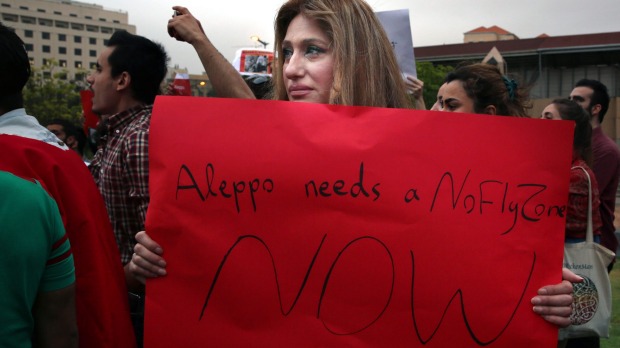
New York: The rules of war, enshrined for decades, require hospitals to be treated as sanctuaries from war and for health workers to be left alone to do their jobs.
But on today’s battlefields, attacks on hospitals and ambulances, surgeons, nurses and midwives have become common, punctuating what aid workers and UN officials describe as a new low in the savagery of war.
The levelling of a hospital in Aleppo that killed the city’s most qualified paediatrician last week, the bombing of a hospital in Yemen by the Saudi-led military coalition in January and the American destruction of a Medecins Sans Frontieres hospital in Afghanistan last year are worrying developments.
On Tuesday, the Security Council unanimously adopted a resolution to remind warring parties everywhere of the rules, demanding protection for those who provide health care and accountability for violators. The measure urged member states to conduct independent investigations and prosecute those found responsible for violations “in accordance with domestic and international law”.
But the resolution also raised an awkward question: Can the world’s most powerful countries be expected to enforce the rules when they and their allies are accused of flouting them?
Russian warplanes were blamed for the bombing of a Syrian hospital in Idlib, for instance, and Syrian soldiers, backed by the Kremlin, continue to remove even painkillers from UN aid convoys heading into rebel-held areas.

From the charity’s international president, Dr Joanne Liu, seated at the Security Council’s horseshoe-shaped table, came the sharpest rebuke to the council’s five permanent, veto-wielding members.
“You therefore must live up to your extraordinary responsibilities, and set an example for all states,” she said. “I repeat: Stop these attacks.”
Without naming the countries, she criticised the United States – for having refused to submit the US attack in October on her organisation’s hospital in Kunduz, Afghanistan, to an independent international inquiry – just as she scolded Russia for having denied that its warplanes had hit civilian targets in Syria.

“Broad attacks on communities and precise attacks on health facilities are described as mistakes, are denied outright or are simply met with silence,” she said.
Meanwhile, a truce in Aleppo, the scene of the worst surge in fighting in recent days, was still hoped for by Russia and the US on Wednesday. Its exclusion from the first major ceasefire of the five-year-old Syrian civil war has caused havoc with the on-again off-again negotiations.
The US and Russia have taken the leading roles in diplomacy since Moscow joined the war last year with an air campaign that tipped the balance of power in favour of President Bashar al-Assad, its ally.

In an effort to revive the ceasefire, temporary local truces have been put in place in two parts of Syria, but those have not been extended to Aleppo, Syria’s largest city before the war and its biggest strategic prize now.
On Wednesday an European think-tank warned the war risked sparking catastrophic confrontation between powers.
“According to the latest report of the UN-mandated Independent International Commission of Inquiry on Syria, the conflict has evolved into a ‘multisided proxy war steered from abroad by an intricate network of alliances’,” said the European Leadership Task Force whose experts include Russian former policymakers and European ex-ministers and defence planners.

“In recent months, however, the danger of this proxy war turning into a direct interstate conflict has increased.”
The report noted that the danger of accidental conflict had diminished after the ceasefire was reached in March.
But it said several countries seemed to assume they had space for assertive unilateral actions in Syria, as “the other side” would refrain from an actual confrontation.

“This assumption may be proven incorrect,” it said. Countries involved in the war exercised limited control over the activities of their allies, while some might have an interest in pushing their sponsors towards interstate confrontation.
“Finally, there is a danger that an accident, military incident or an unauthorised action could spark a conflict, especially in the absence of effective communication channels.”
The New York Times, Reuters
